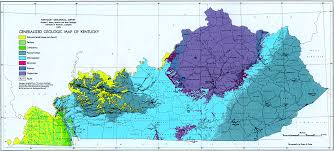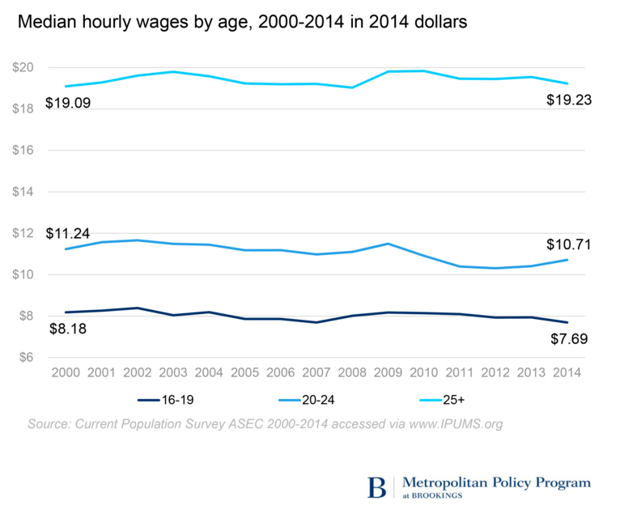
Thursday, December 31, 2015
2016 New Years Resolutions
What about focusing on the following five intellectual and psychological abilities and attributes if you are a young engineer just starting down your career path:

- Preparedness and Work Ethic - Develop a "success" routine. Come in early and stay late. Be prepared in all endeavors. Be disciplined and learn to manage distractions.
- Concentrate and Focus - Engineering is a concentration and focus profession. You need to get X done and you have Y time to do it - and it has to be done correctly the first time. Conduct you daily activities with this in mind.
- Competitiveness and Self-Confidence - Engineering school teaches you how to overcome self-doubt and other psychological obstacles. Don't forget this experience - it will serve you well during your career.
- Stress Management and Humility - Professional careers will have slumps. Learn to manage these slumps. Things are never as bad as they initially seem and tomorrow is usually better than today.
- Adaptiveness and Learning Ability - Like all physical assets, you are subject to the laws of depreciation. Your education depreciates the minute after you get your diploma. You will need renewal and remodeling. Learn to love learning.

A Paragraph to Ponder
From the current issue of American Scientist - The Rising Cost of Resources and Global Indicators of Change by Carey W. King:
"Just like the population, as we have slowed the expansion of our energy infrastructure, it has also become older. I have calculated a dependency ratio for U.S. electric generation equal to the fraction of total capacity that is older than a certain age (for instance, 40 years) divided by the fraction of total capacity younger than that same age. We have never had an older fleet of power generation assets than today. Since the 1970s, we have relied more and more on older power plants."

"Just like the population, as we have slowed the expansion of our energy infrastructure, it has also become older. I have calculated a dependency ratio for U.S. electric generation equal to the fraction of total capacity that is older than a certain age (for instance, 40 years) divided by the fraction of total capacity younger than that same age. We have never had an older fleet of power generation assets than today. Since the 1970s, we have relied more and more on older power plants."

Wednesday, December 30, 2015
Fighting Over CA Water
Farmers Try Political Force to Twist Open California’s Taps https://t.co/PuV7xS2lpw
— Dr.Steven D.Sanders (@DocEngineering) December 31, 2015
Topping Off Before New Years Eve
My son topped off his building that he is working on today.


Getting a Masters in Urban Analytics
Good example of a program that has a focus on the smart cities/urban analytics movement - - might be a nice fit for an undergraduate civil engineering major.
Tuesday, December 29, 2015
Tire Rotation and the Self Driving Car
Twitter is nice and I like the idea of keeping up with friends on Facebook, but I want a future of self-driving cars. This decade. I had my tires rotated last night. It took a little over three hours of my time - - just wanting. Why can't my truck rotate its own tires? Send it to the service center by itself, have the work done, and then come back home. Why do I have to go along for the ride?
Things need to speed up - from sensors in bridges to "smart" roads - technology needs to be deployed that allows for a saver, cheaper, and faster world. I am tired of waiting on my truck at the service center.
Things need to speed up - from sensors in bridges to "smart" roads - technology needs to be deployed that allows for a saver, cheaper, and faster world. I am tired of waiting on my truck at the service center.
Monday, December 28, 2015
Engineering and Floodplain Management
From the Environmental and Urban Economics blog:
"The NY Times reports that parts of York, Leeds and Manchester have recently been flooded. Such natural disasters raise several adaptation questions. First, is this simply bad luck or a leading indicator of a risk that will repeatedly occur in the future? Second, under business as usual development patterns; how much damage does such flooding cause to structures and to urban productivity by disrupting activity? Third, what actions can individuals, firms and local governments take to reduce their exposure to flood risk? How costly will each of these actions be and what will their self protection benefits be? Fourth, do current insurance contracts encourage or discourage investment in such self protection actions? Fifth, has government policy actually crowded out private self protection by encouraging development in flood plains? Sixth, have the British figured out how to use GIS spatial software to make up to date maps of emerging flood plains? Seventh, how do current zoning laws near British rivers now operate? Who enforces them? Eighth, will a "silver lining" of this recent flooding be an increased investment in resilience and new incentives such that future floods will cause less damage to life and capital? While this blog entry has focused on the British floods, these same questions should be asked in the case of every flood region.
Do urbanites make the same mistake over and over again? The hallmark of rational expectations is that forecasting errors are uncorrelated. Why? Because if they are correlated, you could make a better forecast and make wiser investments based on this updated forecast. As I have argued before, climate change adaptation will offer the cleanest test of whether rational expectations or behavioral economics offers a better model of explaining and predicting behavior."
"The NY Times reports that parts of York, Leeds and Manchester have recently been flooded. Such natural disasters raise several adaptation questions. First, is this simply bad luck or a leading indicator of a risk that will repeatedly occur in the future? Second, under business as usual development patterns; how much damage does such flooding cause to structures and to urban productivity by disrupting activity? Third, what actions can individuals, firms and local governments take to reduce their exposure to flood risk? How costly will each of these actions be and what will their self protection benefits be? Fourth, do current insurance contracts encourage or discourage investment in such self protection actions? Fifth, has government policy actually crowded out private self protection by encouraging development in flood plains? Sixth, have the British figured out how to use GIS spatial software to make up to date maps of emerging flood plains? Seventh, how do current zoning laws near British rivers now operate? Who enforces them? Eighth, will a "silver lining" of this recent flooding be an increased investment in resilience and new incentives such that future floods will cause less damage to life and capital? While this blog entry has focused on the British floods, these same questions should be asked in the case of every flood region.
Do urbanites make the same mistake over and over again? The hallmark of rational expectations is that forecasting errors are uncorrelated. Why? Because if they are correlated, you could make a better forecast and make wiser investments based on this updated forecast. As I have argued before, climate change adaptation will offer the cleanest test of whether rational expectations or behavioral economics offers a better model of explaining and predicting behavior."
Engineering the Rise of Super-Forecasters
Could you be a ‘super-forecaster’? https://t.co/NKy8HJ05OL via @BBC_Future
— Dr.Steven D.Sanders (@DocEngineering) December 28, 2015
Sunday, December 27, 2015
Saturday, December 26, 2015
A Paragraph to Ponder
From the current issue of Bloomberg Businessweek - I'll Show You Climate Change:
"Annual U.S. coal consumption peaked in 2007 at 1.1 billion tons and declined to 919 million tons in 2014, the least since 1992. Kentucky production topped out earlier, in 1990, at 173 million tons. The state was displaced as the nation's No. 1 producer in 1988 by Wyoming, home to the resource-rich Powder River Basin."

"Annual U.S. coal consumption peaked in 2007 at 1.1 billion tons and declined to 919 million tons in 2014, the least since 1992. Kentucky production topped out earlier, in 1990, at 173 million tons. The state was displaced as the nation's No. 1 producer in 1988 by Wyoming, home to the resource-rich Powder River Basin."
Friday, December 25, 2015
The Importance of Flying Cars
Things to Celebrate, Like Dreams of Flying Cars https://t.co/RC5u3kWmuq
— Dr.Steven D.Sanders (@DocEngineering) December 25, 2015
Solar vs. Coal
It’s a wonderful life for the solar industry right now https://t.co/JhgSq5EiGm via @grist
— Dr.Steven D.Sanders (@DocEngineering) December 25, 2015
MIgration
Where are Americans moving? Think sunshine and jobs https://t.co/0v4Z4BttFL via @BV
— Dr.Steven D.Sanders (@DocEngineering) December 25, 2015
Tuesday, December 22, 2015
2016 In the World of Transportation
The Biggest U.S. Transportation Projects to Watch in 2016 https://t.co/SkONWYpGHV
— Dr.Steven D.Sanders (@DocEngineering) December 23, 2015
Who Wins With Climate Change - Civil Engineering and Ice Cream
From Halliburton to Walmart, these big corporations will make money off of climate change https://t.co/adVQDWENGo via @grist
— Dr.Steven D.Sanders (@DocEngineering) December 22, 2015
Monday, December 21, 2015
Civil Engineering In the Age of Bad News
From the excellent Elizabeth Kolbert in the current issue of the New Yorker - The Siege of Miami:
"Neither of us was
wearing boots, a fact that, as we picked our way along, we agreed we regretted.
I couldn’t help recalling stories I’d heard about Miami’s antiquated sewer
system, which leaks so much raw waste that it’s the subject of frequent
lawsuits. (To settle a suit brought by the federal government, the county
recently agreed to spend $1.6 billion to upgrade the system, though many
question whether the planned repairs adequately account for sea-level rise.)
Across the soaked intersection, in front of a single-family home, a middle-aged
man was unloading groceries from his car. He, too, told us he didn’t know where
the water was coming from.
“I heard on the news
it’s because the moon turned red,” he said. “I don’t have that much detail
about it.” During the past month, he added, “it’s happened very often.” (In an
ominous development, Miami this past fall experienced several very high tides
at times of the month when, astronomically speaking, it shouldn’t have.)
“Honestly, sometimes,
when I’m talking to people, I think, Oh, I wish I had taken more psychology
courses,” Hammer told me. A lot of her job involves visiting low-lying
neighborhoods like Shorecrest, helping people understand what they’re seeing.
She shows them elevation maps and climate-change projections, and explains that
the situation is only going to get worse. Often, Hammer said, she feels like a
doctor: “You hear that they’re trying to teach these skills in medical schools,
to encourage them to have a better bedside manner. I think I might try to get
that kind of training, because it’s really hard to break bad news.”"The New Engineering Oligarchs
From New Geography:
"Ultimately the ambitions of the oligarchs are boundless. Firms like Amazon CEO Jeff Bezos’ Blue Origin, and Elon Musk’s Space X, seek to lead the world in space exploration. If NASA continues to retreat from many areas of space exploration, it is likely that, in the future, the heavens may end up belonging to the oligarchs as well."
"Ultimately the ambitions of the oligarchs are boundless. Firms like Amazon CEO Jeff Bezos’ Blue Origin, and Elon Musk’s Space X, seek to lead the world in space exploration. If NASA continues to retreat from many areas of space exploration, it is likely that, in the future, the heavens may end up belonging to the oligarchs as well."
Sunday, December 20, 2015
Friday, December 18, 2015
Wednesday, December 16, 2015
Trump to be Endorsed by the American Society of Civil Engineers?
From the debate last night:
""We've spent $4 trillion trying to topple various people," Trump said. "If we could've spent that $4 trillion in the United States to fix our roads, our bridges and all of the other problems -- our airports and all of the other problems we've had -- we would've been a lot better off. I can tell you that right now.""

""We've spent $4 trillion trying to topple various people," Trump said. "If we could've spent that $4 trillion in the United States to fix our roads, our bridges and all of the other problems -- our airports and all of the other problems we've had -- we would've been a lot better off. I can tell you that right now.""

Tuesday, December 15, 2015
Monday, December 14, 2015
Sunday, December 13, 2015
The CEO as Relentlessly Inquisitive
From a Fortune profile of Nike CEO Mark Parker - Nike's Master Craftsman:
"As Nike's boss, Parker is relentlessly inquisitive. "Mark's questions are often either leading or directive," says Andy Campion, Nike's chief financial officer and a former Disney executive. "What's fascinating about his use of questions is that it leaves other leaders empowered to find the answers themselves and act on them." Parker has a penchant, as well, for managing by aphorism. Spanx's Singer recalls him waxing sagacious on the question of talent management by comparing someone on Singer's team to an oak tree. "He told me, "Trying to turn it into a pine tree isn't going to help anyone. But making it into the best oak tree possible is the goal."

"As Nike's boss, Parker is relentlessly inquisitive. "Mark's questions are often either leading or directive," says Andy Campion, Nike's chief financial officer and a former Disney executive. "What's fascinating about his use of questions is that it leaves other leaders empowered to find the answers themselves and act on them." Parker has a penchant, as well, for managing by aphorism. Spanx's Singer recalls him waxing sagacious on the question of talent management by comparing someone on Singer's team to an oak tree. "He told me, "Trying to turn it into a pine tree isn't going to help anyone. But making it into the best oak tree possible is the goal."

Engineering in a Time of Drought and Deluge
Lewisville Dam: The dam called trouble | @dallasnews https://t.co/FgplnLoqzS
— Dr.Steven D.Sanders (@DocEngineering) December 13, 2015
Saturday, December 12, 2015
Your City as Digital Lab
As world crowds in, cities become digital laboratories https://t.co/8bEusTS0RO
— Dr.Steven D.Sanders (@DocEngineering) December 13, 2015
Water Term of the Week - Flexible Water Management
From the current issue of ENR - by Jeff Gunderson, Water Stressors Driving Projects Around the Globe. Water engineering and management is increasingly about dealing with extremes - - the yin and yang of mother nature.
"Lesile Shoemaker, Tetra Tech's executive vice president of water, environment and infrastructure, says smart and integrated water-management approaches that combine new and emerging technologies to better monitor, track and optimize systems are an emerging driver in developed markets. Along these same lines, Shoemarker sees increasing interest in the development of flexible water and wastewater management systems that can function efficiently in long cyclical droughts but quickly adapt to extreme wet conditions, when flooding risks are elevated. "Flexible water management goes right back to the idea of using real-time control and water water technology.""
"Lesile Shoemaker, Tetra Tech's executive vice president of water, environment and infrastructure, says smart and integrated water-management approaches that combine new and emerging technologies to better monitor, track and optimize systems are an emerging driver in developed markets. Along these same lines, Shoemarker sees increasing interest in the development of flexible water and wastewater management systems that can function efficiently in long cyclical droughts but quickly adapt to extreme wet conditions, when flooding risks are elevated. "Flexible water management goes right back to the idea of using real-time control and water water technology.""
Arup - The Six Steps to Green Infrastructure
Arup | Thoughts | Six steps to successful green infrastructure https://t.co/kUw40ocPWj
— Dr.Steven D.Sanders (@DocEngineering) December 12, 2015
Friday, December 11, 2015
InfraPlan
From the InfraPlan website:
"InfraPlan offers solutions supporting the rehabilitation planning of buried water and wastewater networks, as well as other assets. InfraPlan's associates have a strong combination of experiences in research and field applications in the U.S., Canada, and Europe. This has put InfraPlan in a unique position to introduce a new concept, InfraPlanSolutions, an asset management framework that incorporates the most advanced approaches and analytical models in an integrated way."
"InfraPlan offers solutions supporting the rehabilitation planning of buried water and wastewater networks, as well as other assets. InfraPlan's associates have a strong combination of experiences in research and field applications in the U.S., Canada, and Europe. This has put InfraPlan in a unique position to introduce a new concept, InfraPlanSolutions, an asset management framework that incorporates the most advanced approaches and analytical models in an integrated way."
Thursday, December 10, 2015
Wednesday, December 9, 2015
When It Rains It Pours
The Destiny of a Brand Is in Your Hand https://t.co/iP0L7Br33R
— Dr.Steven D.Sanders (@DocEngineering) December 9, 2015
Tuesday, December 8, 2015
What I Learned From Reading Rolling Stone
From the current issue by Sean Wilentz, The Turning Point:
"According to data reported by respected Democratic pollster Stanley B. Greenberg, a majority of U.S. households are now headed by unmarried people; non-religious seculars outnumber Protestants; two-thirds of women are either the breadwinners or co-breadwinners of their households. Racial minorities now constitute 40 percent of the nation's population."
"According to data reported by respected Democratic pollster Stanley B. Greenberg, a majority of U.S. households are now headed by unmarried people; non-religious seculars outnumber Protestants; two-thirds of women are either the breadwinners or co-breadwinners of their households. Racial minorities now constitute 40 percent of the nation's population."
Sunday, December 6, 2015
Extreme Weather and Wastewater Overflows in Dallas
Luke Metzger and Sara Smith: The unacceptable inundation of our water infrastructure | @DMNOpinion https://t.co/LtmmOdso7l
— Dr.Steven D.Sanders (@DocEngineering) December 6, 2015
Saturday, December 5, 2015
High Tides Realty - A Climate Change Company
Meet the New York Real Estate Consultants Profiting From Climate Change https://t.co/wodLzsFPGi
— Dr.Steven D.Sanders (@DocEngineering) December 5, 2015
Friday, December 4, 2015
The Future in 6 Phases
From Noahpinion - -
Phase 1: Technological Change. The IT revolution, computers, the internet, automation, mobile communication.
Phase 2: Globalization. The huge wave of global growth between 1990 and 2008. Globalized supply chains. A huge Latin American immigration flow into the U.S., and a huge Middle Eastern immigrant flow into Europe.
Phase 3a: Inequality. Rising income and wealth inequality everywhere. Stagnating wages in rich countries. An explosion in the number of billionaires. Soaring college tuition as workers desperately try to get skills.
Phase 3b: Cultural Change. Greater economic opportunity and equality for women, due to the service economy. A rise in divorce and single parenthood, and a drop in marriage. Sex culture spreading via the Internet. The decline of religion.
Phase 3c: Financialization: The explosion of financial profits and output as percentages of the total.
Phase 3d: Geopolitical Shift: The rise of China and the recovery of Russia, and (most importantly) the de facto alliance between the two.
Phase 4: Rise of Extremism. The steady polarization of American politics. Skyrocketing use of the filibuster. The Tea Party. The debt ceiling crisis. Trump. Sanders. Fox vs. MSNBC. Le Pen. The British National Party. Syriza and Golden Dawn. The Zaitokukai. Campus anti-speech movements. Online wars between leftist "SJWs" and rightists (GamerGate, etc.). The normalization of the terms "fascist" and "socialist". Illiberalism on both sides of the political spectrum.
Phase 5: Economic Slowdown: The 2008 crisis and the Great Recession, the Euro crisis and the China slowdown and the emerging markets slowdown.
Phase 6: War. Let's hope not...
Thursday, December 3, 2015
Moving Refugees to Ohio

From New Geography:
"Youngstown mayor John McNally has said that his most important task is to stop the depopulation. A city like Youngstown needs to stop the hemorrhaging and get an infusion of energy. Would the city gain by encouraging refugees to move to Youngstown? Other communities have tried this approach, encouraging immigrants to move to depopulated areas and gaining new economic activity in the process. Weather-challenged Winnipeg, the capital of Manitoba, has taken advantage of the Manitoba Provincial Nominee Program, which “selects applicants who demonstrate they have the potential and the desire to immigrate and settle themselves and their families in the Canadian province of Manitoba.” Immigrants may apply through different categories such as General, Family Support, International Student, Employer, Strategic Initiative, or Business Immigration. An Economic Development study reports that Winnipeg’s metropolitan population has grown to 780,000, 100,000 higher than earlier projections. The population increase includes about 85,000 immigrants. Between 2009-2014, the local economy stabilized with unemployment below the national average and higher labor force participation and wage growth. In 2014, the city was touted by KPMG as the No. 1 low cost manufacturing location in aerospace, chemical, electronics assembly, pharmaceuticals and telecommunications equipment in North America."
Wednesday, December 2, 2015
What Do Engineers Mean by the Word Resilience?
From the New York Times magazine - The Profound Emptiness of "Resilience":
"But where ‘‘resilience’’ can suggest new avenues for civic infrastructure — admitting that disaster can’t always be diverted and shifting the focus to survival strategies — it is indistinguishable from classic American bootstrap logic when it is applied to individuals, placing all the burden of success and failure on a person’s character. ‘‘It’s pretty much the same message that’s drummed into us by Aesop’s fables, Benjamin Franklin’s aphorisms, Christian denunciations of sloth and the 19th-century chant invented to make children do their homework: ‘If at first you don’t succeed, try, try again,’ ’’ the social scientist Alfie Kohn argued in an op-ed article in The Washington Post. ‘‘The more we focus on whether people have or lack persistence (or self-discipline more generally), the less likely we’ll be to question larger policies.’’"

"But where ‘‘resilience’’ can suggest new avenues for civic infrastructure — admitting that disaster can’t always be diverted and shifting the focus to survival strategies — it is indistinguishable from classic American bootstrap logic when it is applied to individuals, placing all the burden of success and failure on a person’s character. ‘‘It’s pretty much the same message that’s drummed into us by Aesop’s fables, Benjamin Franklin’s aphorisms, Christian denunciations of sloth and the 19th-century chant invented to make children do their homework: ‘If at first you don’t succeed, try, try again,’ ’’ the social scientist Alfie Kohn argued in an op-ed article in The Washington Post. ‘‘The more we focus on whether people have or lack persistence (or self-discipline more generally), the less likely we’ll be to question larger policies.’’"

Tuesday, December 1, 2015
Customer Micro-Moments and Mobile Technology
From Think With Google:
"Let me give you a very clear example of that. A micro-moment when you're traveling is wanting to get into your hotel room and not have to wait in line to check-in. With the Starwood app, you can check-in right on the app. As soon as you enter the property, beacons recognize that you're there. You verify your identity with a fingerprint (if you’re on an iPhone), the app provides your room number, and then you simply hold your phone up to the entranceway to the room, and go right in. That's an amazing way for a brand to help you in a micro-moment."
"Let me give you a very clear example of that. A micro-moment when you're traveling is wanting to get into your hotel room and not have to wait in line to check-in. With the Starwood app, you can check-in right on the app. As soon as you enter the property, beacons recognize that you're there. You verify your identity with a fingerprint (if you’re on an iPhone), the app provides your room number, and then you simply hold your phone up to the entranceway to the room, and go right in. That's an amazing way for a brand to help you in a micro-moment."
Housing Booms and Busts
The Housing Boom Is Not a Bubble https://t.co/YdpSfl923J
— Dr.Steven D.Sanders (@DocEngineering) December 2, 2015
Subscribe to:
Comments (Atom)








